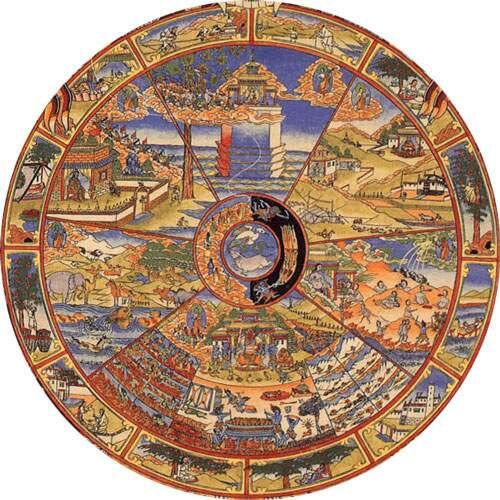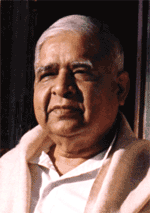Lessons learned from talking to ourselves
Are we really hearing when people talk to us? Or do we just hear what we want to hear?
My younger sister often calls me during her long drives to and from work. The last time we spoke, I must have been going on and on about something when the call dropped and I did not notice. So I was having a conversation with her that she did not hear. It made me realize that when people talk, the conversation is often not about the other person until we’re seeking their approval.
I only noticed that my sister was no longer on the line with me because I was seeking affirmation – in this case social cues like really? or Aha! – otherwise it would feel to me as if I were speaking to myself. But in this case maybe it wasn’t so bad that she missed what I was saying – she does have a tendency to hold my feet to the fire and undoubtedly would have asked her trademark “Are you practicing what you preach?”
I’ve written before about one of my teachers named Lester Levenson. Lester asserted that all of our thoughts culminate into 3 wants:
- Approval
- Control
- Security
In other words, for everything a person wants to do, or avoid, one of these 3 wants is driving them. This inevitably leads to more self-talking and hopefully the age-old meditation: Who am I?
Having experimented with many meditation schools, I can say that very few people really meditate. Some people who like to use a mantra think they’re meditating, and it works for them, because in the process they quiet their minds and they find peace. The truth is that if you want to reach divinity, concentrating on chants and mantras is not the way because you’re using the mind to conquer the mind.
Meditation the spiritual way is instead about disinhibition, letting go of mind and living in the present moment, and nothing else…certainly not prepping for an argument with my husband! That is probably why I keep coming back to meditation, and it continues to improve my life in new ways.
So you see, talking to yourself like a friend is fine – but don’t forget that the best friends are the ones you can sit with in silence.
Have you ever closed your eyes and dared not to dream?
A Journey to Panna: My Second Vipassana Retreat…Part 2
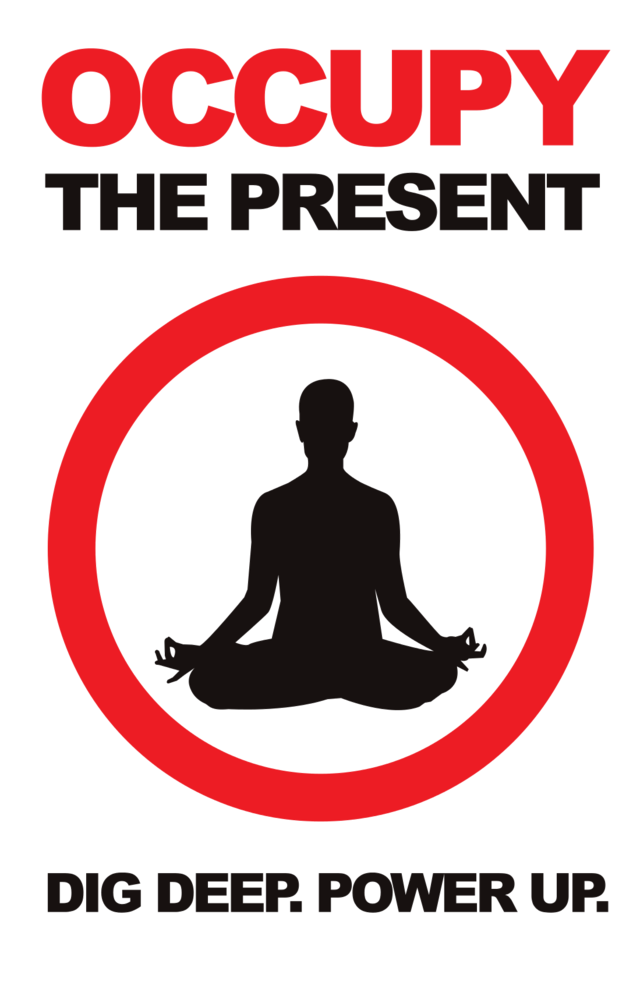 The last time I wrote, I attested to the awesome power of Vipassana meditation, and my second 10-day retreat there earlier this year. Thinking back to that wonderful week and a half I find myself feeling so blessed beyond measure…wow.
The last time I wrote, I attested to the awesome power of Vipassana meditation, and my second 10-day retreat there earlier this year. Thinking back to that wonderful week and a half I find myself feeling so blessed beyond measure…wow.
We left off on Day 6. On day 7, I didn’t go to meditate in my assigned cell at the pagoda. Instead, from 4:30-6:30 a.m., I sat in the meditation hall. My body was aching, and I kept resisting the urge to move. I was playing tough, in that I didn’t want to change my position and I was suffering, and that suffering was massive.
What had gone wrong? The day before I had attained my much anticipated, much hoped-for “A-ha” moment, and now I was miserable. Somehow, I needed to figure out a way to apply Goenkaji’s teachings. I started hearing Goenkaji’s voice in my head. The suffering was still there, but his voice instilled an attitude of gratitude. I was grateful for this opportunity, I was grateful for who I am, and everything in my life. As they say: No regrets.
So by sitting there, and observing the unpleasant sensation throughout my body from head to toe and examining how it felt, I decided that from then on my body would be still. My mind is going to be quiet, calm, alert, equanimous, and whatever situation I find myself in it, too, shall pass.
Every time I wanted to scratch an itch, or whatever the case might have been, I knew that, too, would pass. I cannot talk about other people’s sensations, but I know for sure I experienced the sensation of coming and going away from my own body. One minute I was in Cameroon, aged 5, then aged 7, then 15, and the next minute I was in France, aged 20, then one city or another, then before you know it I found my old self in school in New York and then I was back at Dhamma Dara, in my self-imposed prison.
Then another A-ha moment: I do not have to be my thoughts, I can simply be the observer of my thoughts.
Observing our thoughts instead of being them relieves some of our suffering! Whining and complaining about not having enough money will not put money in your pocket. It just creates deeper and deeper sankara, or misery, that robs us of our clarity of mind. And the joke is that when you really let go, it all comes to you. I have witnessed that firsthand.
What you resist persists…It is our resistance that creates suffering.
– Buddha
And the resistance creates more and more resistance.
The rest of my time at the retreat was spent living in the moment, and I began to aspire to doing dishes and cleaning the toilets in the center. That is what older students like me graduate to; being of service to newer students.
I would like to make a small disclaimer to anyone considering a retreat at Dhamma Dara: The Vipassana technique does not work if it is diluted, blended or turned into a frappé. The meditation hall can be like a torture chamber, but it’s a free torture chamber; donations are only accepted after you have tried the course. I always used to hide behind donating money, but there, service is always more meaningful than money. I have to go and donate my most valuable asset – my time – and serve in any capacity I’m assigned to serve, including doing the dishes, wiping and cleaning toilets. That is my next move, and I’ve already signed up to do that this fall.
A Journey to Panna: My Second Vipassana Retreat
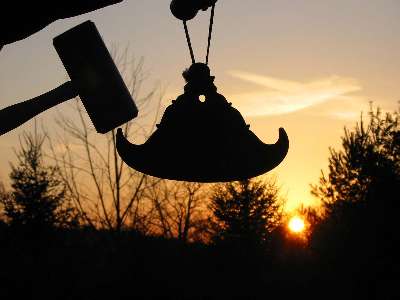 Recently I attended my second 10-day retreat and vow of Noble Silence at the Dhamma Dhara Vipassana Meditation Center in Shelburne Falls, Massachusetts. When I arrived at the center I was greeted with a flood of memories from my first retreat last year and the incredible spiritual journey I experienced with karmic guru SN Goenka (Goenka-ji).
Recently I attended my second 10-day retreat and vow of Noble Silence at the Dhamma Dhara Vipassana Meditation Center in Shelburne Falls, Massachusetts. When I arrived at the center I was greeted with a flood of memories from my first retreat last year and the incredible spiritual journey I experienced with karmic guru SN Goenka (Goenka-ji).
This year was different because Goenka-ji had given up his body not long after my first Vipassana experience last year. Hearing his booming chant, this year, knowing that he was in another dimension, was priceless. He was very much alive and fully present.
From 4 am to 4:30 am, your alarm clock is a gong banged by volunteers who serve. The meditation starts at 4:30 am–we meet in the meditation hall. The day ends at 9:30 p.m. Lights are out at 10 p.m. There are approximately 10 or 11 hours of sitting meditation in complete silence sandwiched in between. At times we heard chanting, but were forbidden from chanting ourselves.
Each day the true treat was the evening discourses delivered by Goenka-ji.
Before the retreat even starts, you have to adopt a certain code of conduct which included 5 strong precepts of the Vipassana technique:
- The rejection of killing – especially in what we eat
- No lying
- No stealing
- No sex
- No intoxicants.
In other words, the senses are not to be indulged at all. For the first 3 days of the retreat, we practiced anapana meditation. The purpose is to tranquilize the mind before embarking on the Vipassana technique on day 4.
- On Day 4, I meditated alone in a cell within a pagoda — a self-imposed jail. I did not have the big insight that I was hoping for, and yet, that was okay.
- Day 5 was fabulous and my ego, which was dormant, knocked on the door. It wanted to go home, because I thought I had achieved mastery of the technique.
- That big ‘A-ha’ moment arrived during the afternoon of day 6 after mud wrestling with my ego. The concept of non-duality is one that I have known for over a decade, and though I understood it intellectually, it was only on day 6 that I experienced it at the cellular level.
Let me tell you what I mean. For example:
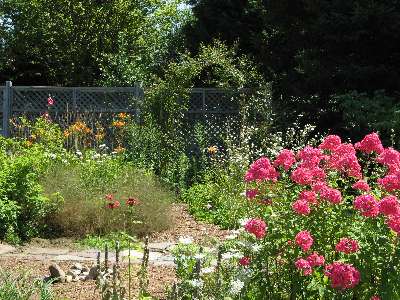 If you can watch sensations come and go, with equanimity (think of a mosquito bite and your urge to scratch it sooo badly), but you know that it will only make it itch more — so you just observe the sensations and don’t scratch it. Because that itch, too, shall pass.
If you can watch sensations come and go, with equanimity (think of a mosquito bite and your urge to scratch it sooo badly), but you know that it will only make it itch more — so you just observe the sensations and don’t scratch it. Because that itch, too, shall pass.
Similarly with your agitating (or itchy) thoughts, you can watch them come and go, without indulging them and being reactive or explosive. You can simply observe them, without attachment or aversion. They will, like clouds, disappear – sometimes those might be storm clouds!
Sitting in the pagoda then, I realized that nothing, and no one, could ever bother me.
As I continued, the connection between mind and body became more apparent. Buddha said, after years of living close to starvation as an ascetic, that one should take care of one’s body. I began to sense the quantum interaction between my mind and the sensations I was feeling in my physical form. My body may have ached from sitting in meditation for hours at a time, but I was determined to keep going, even as I suffered more and more.
Join me next time to discover what happened after day 6!
Your Children Are Not Yours
And a woman who held a babe against her bosom said,
Speak to us of Children.
And he said:
Your children are not your children.
They are the sons and daughters of Life’s yearning for itself.
They come through you but are not from you,
And though they are with you they belong not to you.
You may give them your love but not your thoughts,
For they have their own thoughts.
You may house their bodies but not their souls,
For their souls dwell in the house of tomorrow, which you cannot visit, not even in your dreams.
You may strive to be like them, but seek not to make them like you.
For life goes not backward nor tarries with yesterday.
You are the bows from which your children as living arrows are sent forth.
The archer sees the mark upon the path of the infinite, and He bends you with His might that His arrows may go swift and far.
Let your bending in the archer’s hand be for gladness;
For even as He loves the arrow that flies, so He loves also the bow that is stable.
– From The Prophet by Kahlil Gibran
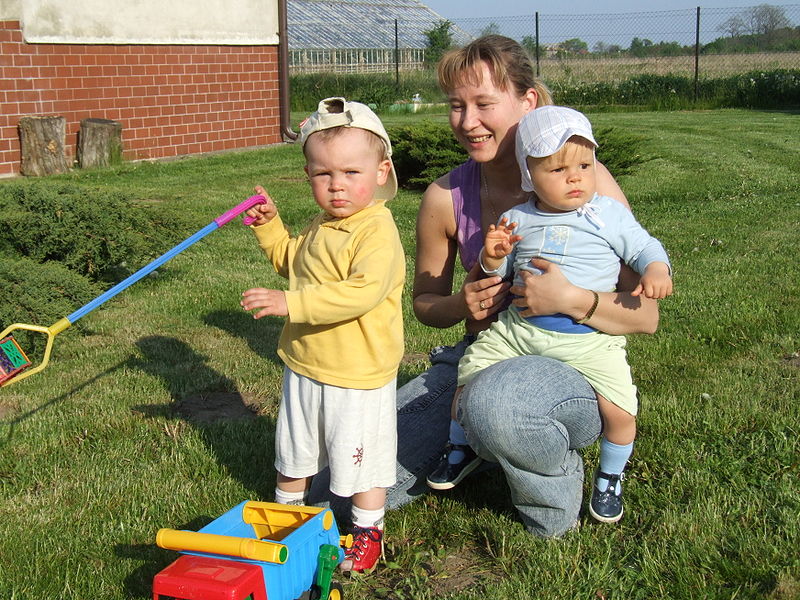 When I read this poem I knew I had to share it. It seems that all around me I see parents not letting go of their children when the time has come. It’s an unhealthy attachment, one that is ages old. Described in Buddhism as Upādāna, attachment takes four intertwined forms:
When I read this poem I knew I had to share it. It seems that all around me I see parents not letting go of their children when the time has come. It’s an unhealthy attachment, one that is ages old. Described in Buddhism as Upādāna, attachment takes four intertwined forms:
-
sense-pleasure (kamupadana) : Pleasure from our senses
-
wrong-view (ditthupadana) : Clinging to false theories and forming speculative theories
-
rites-and-rituals (silabbatupadana) : Eager indulging into rituals and ritual practices
-
self-doctrine (attavadupadana) : Greed arising from the idea that we are eternal, that we exist by ourselves
– Wikipedia
Parental attachment often rises out of fear. What I hear about most from parents is the fear that their child is not going to make it in life, that their child will become a drug user or dropout. Unfortunately, attachment clouds objectivity, and some parents never see just how mature their kids have become on their own.
Living your life without any attachment to the things you like – or aversion to the things you don’t like – helps attain a sense of freedom and happiness, absent of judgement. There is pride and joy when kids figure something out on their own. As a result, children who have a “helicopter” mom or dad doing everything for them will suffer in college.
Helicopter Parent: A parent who is involved in every aspect of a child’s life, especially school. Their own kids often describe them as hovering over them like a helicopter.
So relax a little. Everything around you may be in flux, but you still have to breathe. When you sit comfortably and start to observe your breath, you become an observer. You can be the same type of observer of your kids. But that doesn’t mean inaction. If your child is not doing well, you still need to get to the root of the problem. And that’s where coaching comes in.
Love
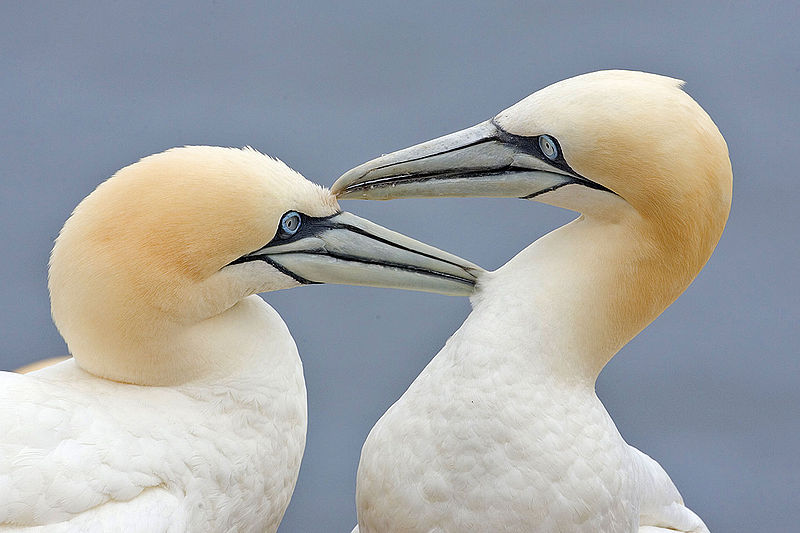 The other day I got inspired by a thought: Have I ever had to explain what Love is to someone? Whenever I say “I love you” to someone they seem to understand what I mean. So I tried to imagine explaining the concept of Love to a child who hadn’t yet figured it out. If we look In the dictionary we see that Love can be a noun, verb or adjective.
The other day I got inspired by a thought: Have I ever had to explain what Love is to someone? Whenever I say “I love you” to someone they seem to understand what I mean. So I tried to imagine explaining the concept of Love to a child who hadn’t yet figured it out. If we look In the dictionary we see that Love can be a noun, verb or adjective.
Love (n, v, adj) refers to a variety of different feelings, states, and attitudes that range from interpersonal affection (“I love my mother”) to pleasure (“I loved that meal”).
I could also turn to the musical Les Misérables for an answer. As the main character Jean Valjean succumbs to an illness there is a point where all music and singing stop, and the theatre is filled with silence…until the chorus sings the following words:
To love another person is to see the face of God.
Over the years I’ve encountered some people that define Love not by how it feels, but how it feels to live without it. They often do not love themselves, and that fundamentally affects the interactions they have with other people. People stuck in a “funk” of non-loving feelings project them outward, and invariably those destructive emotions ricochet right back at them.
Every person you meet is a mirror.
If you put love in other people, that is what you will get back. But what should people do if they look in the mirror and they don’t see love? In my coaching practice I have seen many breakthroughs arise from performing a simple exercise called stream of consciousness exploration. In order to explore our subconscious it often helps to sit down with a piece of paper and a pen, and write everything that comes to mind about a certain word or concept – in this case, “Love.”
The process encourages connections between the different experiences and preconceived notions you may have about Love. Eventually you will realize that Love is not an emotion, but a state of being – a way of life.
And why not start that new way of life with a box of chocolates? Happy Valentine’s Day!
Soaring or Sinking, what’s your pick?
 Part of being a coach is to be constantly learning new things. That’s what I was doing when I found myself being coached by another student at a continuing education class at New York University the other week.
Part of being a coach is to be constantly learning new things. That’s what I was doing when I found myself being coached by another student at a continuing education class at New York University the other week.
We had to break into groups of two in which each member would coach the other one and vice versa. As I was enjoying the insights my partner pointed out in my life, the conversation took a different course.
Where do you find the time to do all that you do? You teach at Princeton Power Yoga at 5:30 am, you commute from Princeton to TriBeCa, you have your own law firm in the city, you coach, you have kids, how do you do all that?
That question I find to be quite profound because I had never sat down to think about me, honestly. I coach people, and get them to reflect on every facet of their lives, yet I never sat down to see exactly why my practice seems to work, and why other people want to emulate me.
There’s only one thing that I can really see and the main thing that I’ve seen happen in my life is that burning passion that I have for every single thing that I do. Having passion inevitably transforms what I do into something of value. In other words, it’s not only helpful to me, but also for the other person. Who would wake up to be at a yoga class at 5:30 am for forty days with the same teacher? My answer is: Ask the 100+ students who have taken my classes in Princeton. For us, waking up at 5:30 am to do Yoga is really not a big deal.
Passion is not reserved for the Yoga studio. When I am doing bench presses or when I am in the courtroom, I am passionate. Additionally, I married a man who has always let me soar in every dimension. I play the game of Life with a passion for being successful, and I feel as entitled to achieve my dreams as any male colleague.
And it’s over-achievers whom I primarily coach. They may come see me if they are dissatisfied with their lives or they cannot connect with their true selves. They are looking for that missing ingredient and what I’m saying is that I can ignite that missing ingredient; I can come up with a coaching model that would really ignite that passion because every single individual has passion, just like peeling the layers of an onion, it’s like discovering your true self. Who are you? In reality?
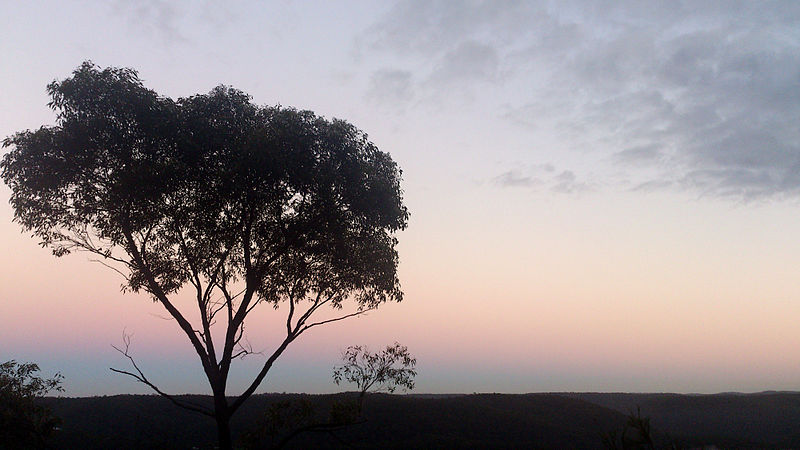 “Everyone can rise above their circumstances and achieve success if they are dedicated to and passionate about what they do.”
“Everyone can rise above their circumstances and achieve success if they are dedicated to and passionate about what they do.”
–Nelson Mandela
Everyone can rise above their stature and achieve success, but how does one choose that success? I bring people to excavate, to uncover that thing which is missing, that one missing ingredient.
What are you missing?
Say “Yes!” To Life
I am lucky to be one of the many thousands of students who have been uplifted by the teachings of karma yogi SN Goenka. I wrote about my experience meeting Master Goenka earlier this month.
I’m glad I did.
On September 29, 2013, my most accomplished yogi gave up his body, no doubt to help other souls on their journey to enlightenment.
Since his passing, I have been thinking about this experience we all share – the splendor of being alive. Buddha taught that life is suffering, and I am here to say “Yes.”
Yes to illness, yes to the job that we fear, yes to whatever keeps us up at night. The source of your suffering might be a relationship; financial problems; losing a job or the death of a loved one, but whatever it is, say “YES!” as we head into the holidays this year. 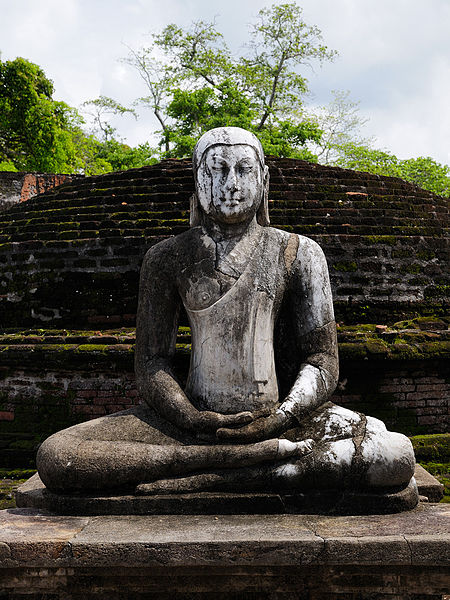
We’ll all be reminded of family members who will not be seated at the table with us because they have passed on. My own father passed 20 years ago. Even the family members who break bread and wishbones with us this year live a life that is rapidly fleeting, just like yours and mine.
But learning to say “Yes” to the impermanence of the people you love this year, during the holiday season, will help you to enjoy their company so much more. Forget about what they should have done, or could have done. Say yes to their so called “mistakes,” and accept them unconditionally. Because it is all too easy to lose ourselves in our technology, to multitask instead of having real conversations. To seek out every possible distraction from the temporary nature of our lives, whether it be fixating on a smartphone or looking at the TV while someone is talking to us.
Those big jets that take us to the places we are from, that’s the only technology we need.
Be the Light and Be Light
Nobody escapes from suffering. We all go through birth, illnesses, death.
But there is a way to live life free of suffering.
– Buddha
I recently had the pleasure of attending a life-altering experience thanks to the compassionate and kind people at the Dhamma Dhara Meditation Center in Shelburne Falls, Massachusetts.
Led by accomplished karma-yogi S. N. Goenka, the retreat was an exercise in letting go. Letting go of my phone, my journal, my books, my ego and my life. About 100 other people and I had come for a week of silence — we each took a vow of silence. On that first day I never could have guessed where this journey would take lead me.
Day #1
The employees at meditation center confiscated all distractions, starting with our cell phones. I likened it to a doctor washing his or her hands before an operation; I had to get rid of all of the potential pathogens that could infect my mind. And this was indeed surgery of the mind.
DAY #2
Day #2 was not good for me at all. I became tearful and I wept inconsolably. At the same time I experienced such a strong anger, anger at myself — for being too competitive and for not knowing what I was looking for.
What was I looking for?
Day #3
Day #2 was bad, but day #3 was extremely bad- bad beyond bad. Every single bone in my body ached from sitting for so long. Nevertheless, I did my duty and sat in silence while my mind was restless.
 I found myself dreaming of ways to escape. Since I love to climb trees, I had thoughts of finding a good tree and jumping off of it to intentionally hurt myself. So I found the right tree and I started climbing. Once up there I realized how foolish it would be to hurt myself. What would I say to a student who wanted to hurt herself?
I found myself dreaming of ways to escape. Since I love to climb trees, I had thoughts of finding a good tree and jumping off of it to intentionally hurt myself. So I found the right tree and I started climbing. Once up there I realized how foolish it would be to hurt myself. What would I say to a student who wanted to hurt herself?
Obviously I had forgotten everything, all the tools that I teach, my coaching techniques, they all went down the toilet.
Day #4
Finally, I started coming to my senses. My unquiet thoughts started disappearing and I began to understand what the Vipassana method is; it is a technique of being totally aware and using breathing techniques as my guide. I decided I was going to learn the method and leave behind my knowledge of other schools and disciplines. I would get through this by being nothingness.
Day #5
As Goenkaji said, even when you’ve retired to your room, you can continue with the method. Well I started having dreams about my mother, my grandmother and all my relatives who I adore so much. I was basically continuing the method even in my sleep.
It was on the fifth day that I started feeling some healing in my body. This brought back memories of a dear friend who was fighting breast cancer (Spoiler alert: She won!). She said that during her chemo sessions she was able put her best foot forward because she knew that there is a higher power that heals.
If I had to choose one word to describe Day #5, it would be “Fabulous.”
Day #6
Day #6 was just OK. Half good and half bad. I confronted many feelings that day, not all of them pleasant. I got to thinking about my three sons and how I might have done some things differently. I felt like I may have created unnecessary suffering for my boys, that I failed them in some sense and that’s when the tears came back.
Day #7 and Day #8 were wonderful. Total bliss.
I did however, begin to experience anxiety because it was almost time to go back home. I didn’t want it to end. I had forgotten my life, my kids, my spouse, my job and who I was exactly. I just wanted to stay in that place and just do nothing and be nothing because being nothing feels so good.
And on the last day when we were finally allowed to talk I heard people say “Oh my god, I did it!” But I still didn’t want to talk, I just wanted to remain that quiet — at least until another student told me that I had been her source of inspiration! No wonder I love teaching so much.
Getting back to that life I led before attending this retreat wasn’t as difficult as I thought it would be, especially when my husband and youngest son greeted me with the most beautiful bouquet of flowers I have ever seen. It was Mother’s Day and I was totally present for it.
Oh my god, I thought, every single person should have this experience.
Being Pro-Choice does not necessarily involve politics…
What is consciousness?
Over the ages, humankind’s tendency towards introspection and self-awareness has led our collective consciousness to dwell on the nature of each of our own “individual” consciousnesses. It is a mystery that has entertained the minds of great men and women since antiquity, but great strides are being made today thanks to the unprecedented fusion of different religions and philosophies.
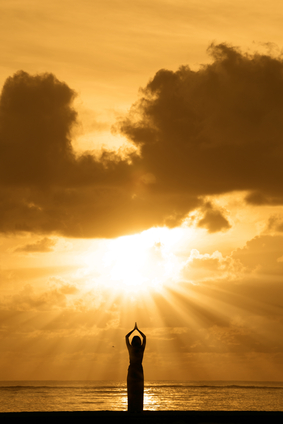 As a Yogini, I work in the trenches with consciousness every day. My job is to help my students tend to their mind, body and spirit. Before each class, I pray my students will reach the highest levels of human consciousness and I can’t help but feel my prayers get answered in every class.
As a Yogini, I work in the trenches with consciousness every day. My job is to help my students tend to their mind, body and spirit. Before each class, I pray my students will reach the highest levels of human consciousness and I can’t help but feel my prayers get answered in every class.
Since my students intend to be loving and kind, I tell them that it begins with envisioning the invisible: loving kindness. There is an old saying, I tell them, “You become what you think about.” If a person wants to be of Love, they must first know Love.
That’s because everything that happens to a person, happens in their consciousness – both figuratively and literally! All of science’s brightest ideas to explain the universe and its many wonders started as seeds in the consciousness of a curious spirit.
Ok…so I’ll repeat: What is consciousness?
I believe that consciousness is the collective experience of all humankind. When I sit down to meditate, there’s nothing but me and you, you and me; we happen to be at different points in our “being-ness,” but we all have passports to go where we choose in the continent of consciousness.
Your relationship with your Self is the key to your mobility; if you don’t love yourself, you will never be able to love someone else. By the grace of God, or the universe, or whatever one believes, the ability to choose to love is possible.
I often tell my students that meditation is an excellent way to start their journey. Letting the clutter and muddy water of your mind settle will reveal untold treasures within, I tell them – thoughts might be hard to shake at first, but one is not one’s thoughts. If something negative surfaces, one can let it go just as easily with neither attachment nor aversion. So what is consciousness?
It is what it is.
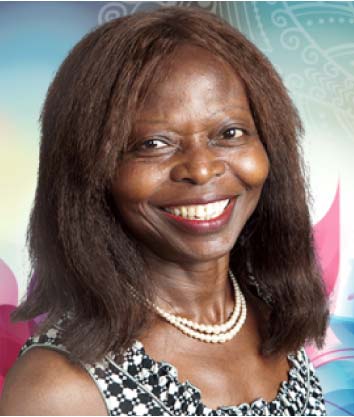 Denise K. Bonnaig, Esq.
Denise K. Bonnaig, Esq.
Authentique Coaching
(212) 374-1511
dkbonnaig@gmail.com
Don’t Let Your Goals Get In The Way Of Your Intentions
Once there were two sisters who were fighting over the last orange in the cupboard. Neither was willing to share it, as each had her own goal of taking the entire orange. When their mother stepped in to settle the dispute, she learned that one girl wanted it for the juice and the other for the rind. “See,” the mother said, “you let your goals get in the way of your intentions.”
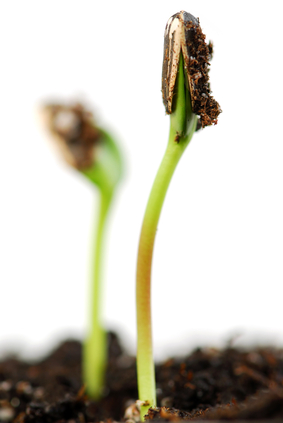 Disappointment, failure, apathy: All words that have a way of lurking in any conversation about New Year’s resolutions. Why is that? If people set goals based on what they would like to become in the new year, why can’t they do it? A knee-jerk reaction might be to say their goals are unrealistic, but what if the real culprit is the very act of setting goals?
Disappointment, failure, apathy: All words that have a way of lurking in any conversation about New Year’s resolutions. Why is that? If people set goals based on what they would like to become in the new year, why can’t they do it? A knee-jerk reaction might be to say their goals are unrealistic, but what if the real culprit is the very act of setting goals?
I ask that question because there are people who have set goals and say things like “I’ll be happy when I get a new job” or “I’d like to be in a new relationship” or “I’ll be happy when I have tons of money” – and when they do reach their goals they’re still unhappy.
I don’t like goals; another word for “goal” is “end,” and I don’t believe in endings. I would rather focus on what my intentions are.
An intention is something to move toward – there’s no conclusion, success or failure. Intentions are non-judgmental, they don’t lead to disappointment and they spring eternal from within each of us as extensions of our personalities.
This year, my New Year’s intention is to let go of all non-loving feelings. I would like to live a life where I don’t judge anyone or anything, where I’m content, and at every instance grateful. I want to keep love and trust, and throw out fear and doubt.
By letting go of all non-loving feelings we get closer to happiness, which is also peace of mind. The times that I have been able to experience such a place have been filled with beauty and the knowledge that everything happens the way it was meant to happen.
Even if today I’m not able to be loving and positive and accepting of everything, I still have tomorrow to start over without beating myself up.
This can be exercised in all areas of life. Relationships, finances, career, health issues; accepting what is happening, focusing on what is working rather than what is not working.
In meditation, thoughts may surface but the key to quieting the mind is to accept those thoughts and move on. Make your life your meditation. If negative thoughts surface into your consciousness, accept them and carry on with your intentions – they will remain the same, negative thoughts or not.
Here’s to 2013…may your intentions inform you and help you answer the most important question you will ever answer: Who are you?


